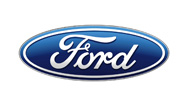Ethical Business Practices
Our Corporate Compliance Office has a comprehensive program in place to guide compliance with Ford Policy Letters and Directives as well as key legal requirements. The Corporate Compliance Office is part of Ford’s Office of the General Counsel. Our compliance program is overseen by a senior management compliance committee and the Audit Committee of the Board of Directors.
The compliance program raises awareness of the Company’s commitment to ethical practices, defines corporate practices through Policy Letters and Directives, ensures an infrastructure that allows for the reporting of Policy violations or business-related legal violations through a number of avenues worldwide, oversees the investigation of such reports, conducts risk assessments, and provides training and education on key legal and ethical risk areas. In 2012, we hired an external law firm to assess our entire compliance program.
Our Policy Letters and Directives formally establish expectations for our employees and others working on behalf of the Company, and our Code of Conduct Handbook is the fundamental tool for communicating these expectations. The Code of Conduct Handbook, our chief ethical guidance document, is a compilation of the most important and relevant Policy Letters, Directives and standards for Ford employees. It is available in 14 languages. The online version, available to Company personnel, includes active links to the original source documents, thus providing a single source for the relevant information.
The Handbook outlines requirements for our employees and those working on behalf of the Company and provides background resources for a wide range of business-related situations, including:
- The workplace environment
- Gifts, favors and conflicts of interest
- Use of Company assets and data safeguarding
- Integrity of financial records
- Product quality, safety and environmental matters
- Intellectual property
- Working with governments (political activities)
- Competition and antitrust laws
- International business practices
All nonmanufacturing employees and most contract personnel around the world are required to certify that they have reviewed the Handbook.
To reinforce information contained in the Code of Conduct Handbook, we introduce new mandatory online training courses on a regular basis for our global nonmanufacturing employees and other targeted personnel. The courses focus on ethics, conflicts of interest, gifts and favors – topics on which we have long provided employee training – as well as touching on additional issues that have global applicability, such as bribery. Recent courses have also covered the topic of protecting personal and Company information. A new Code of Conduct online training course was introduced in December 2012. As of April 5, 2013, more than 84,000 individuals, or approximately 84 percent of those invited, had completed the course.
Another component of our compliance program is an infrastructure that encourages and allows for the reporting of any potential violations of our Policy Letters and Directives, and any violations of laws related to the business. Our nonmanufacturing workforce and contract personnel are regularly reminded of their responsibility to report any known or suspected violation of the law or Company policies. There are many ways for individuals to report such violations, including direct communications to a member of one of the control groups – such as the General Auditors’ Office, Human Resources, or the Office of the General Counsel – as well as telephone tip lines and email. All of our plants have posters describing how our manufacturing workforce can centrally report. In addition, nonmanufacturing employees must either report potential conflicts of interest, or attest (annually) that they do not have any conflicts of interest to report.
We assess compliance with our ethical standards through regular legal audits that cover a range of topics relating to legal requirements and internal policies.
Anti-Bribery/Anti-Corruption
Part of Ford’s philosophy as a company is to manufacture products close to where our consumers are located. We have 67 plants worldwide1, and all of the countries in which these plants are located have their own business-related laws, with varying levels of enforcement and differing cultural norms. It’s essential to us that we conduct our business according to the highest ethical standards in every location in which we operate, and that we not acquiesce to local norms where those norms do not meet our high standards. We have clear policies in place relating to bribery and corruption, as well as procedures for reporting any breaches of those policies.
In 2012, we took steps to ensure that our anti-corruption program was as strong as possible. For instance, we have increased our global training on bribery. We also worked more closely with some of our joint ventures – which we do not directly control – to be sure they have appropriate compliance programs in place. And, we strengthened the anti-bribery/anti-corruption portions of our Global Terms and Conditions – i.e., our contracts with suppliers – to help ensure that they are doing business ethically. We are undertaking additional enhancements to our anti-corruption program in 2013.
- This figure includes our consolidated joint ventures.










